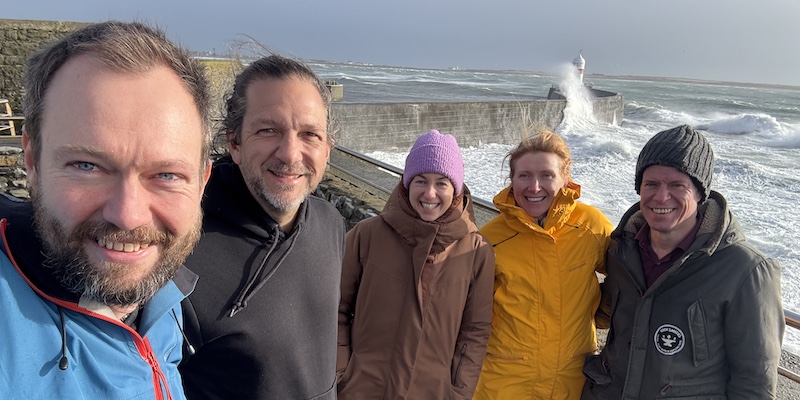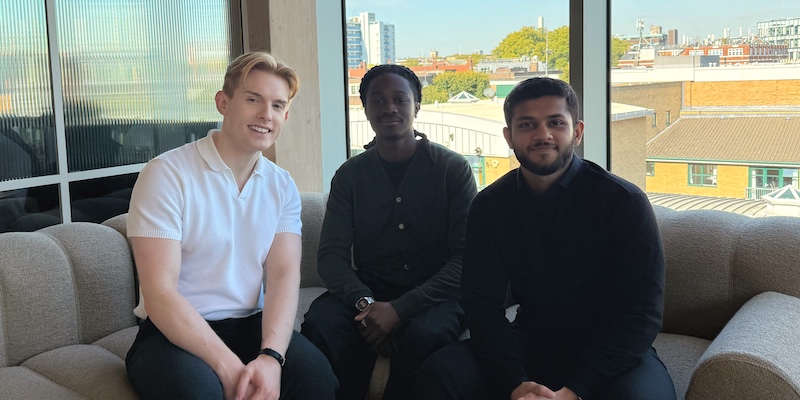
What is the remote BGV Tech For Good programme really like?
Applications for our A21 Tech for Good Programme close this Sunday 13th June. In the weeks leading up to this closing date we’ve been busy holding Q&A sessions and individual calls with founders. We know that “warm intros” are problematic, so we try to combat this by providing accessible and transparent ways for founders from all walks of life to speak with us. This also gives founders a chance to ask as many questions as they like about our investment, support and programme, ahead of submitting their applications.
The most common questions we hear are around what a remote programme is actually like, how much time teams have to commit, and how effectively we can provide support during the 12 weeks. These are really important questions, so we’ve invited three people to share their insights into what the remote A21 BGV programme will be like.
Suzanne Noble is co-founder of Nestful who took part in the S20 programme - our first remote programme. Bernard Ohemeng-Baah is co-founder of Tendelo and is just over half way through our current programme. Aish Moothan is our programme associate and is the go to person for all programme related queries.
How is the remote programme structured?
When we first adapted our programme to be delivered remotely, we tried to replicate the in-person programme. This meant long days on zoom, which let’s face it, isn’t anybody’s dream way of working. We have since made like a startup and pivoted.
Aish: “It’s important to us that the programme exists in a virtual space. We know that founders not only have businesses to run, but also that life can get in the way sometimes, and we didn’t want anyone to miss out on a session because of that. We also try to make sure every session works as a standalone workshop to a large degree, this means that if you have had to miss one or two sessions, you’d still be able to get the most out of future sessions.”
The remote programme still takes place over a 12-week period, but the 8-10 “contact hours” a week are now scheduled more mindfully to avoid zoom fatigue. These take the form of workshops, sprints, office hours and review sessions. While this may not sound like a huge time commitment, it is important to bear in mind that the 12-week programme is an intensive course where we are providing founders with a lot of practical information and advice to help accelerate their business development. We also find this gives founders some clear structure throughout the week which helps motivation and momentum.We provide founders with the recordings, slides and resources from all the sessions, so if you can’t make one you can always go back to it later. This is also useful if you need a refresher on a particular topic, like business modelling.
Who can participate in the remote programme?
At BGV we are dedicated to investing in diverse founders - this is both morally and commercially sound. The impact remote working has had on accessibility is well documented, and we’ve been pleased to see how this has positively impacted who is able to join our cohort.
Suzanne: “My co-founder was based in Newcastle and was grappling with the decision of whether to move down to London for three months or commute for the programme. It was honestly a bit of a relief when the programme went online as this no longer became an issue. We were able to get more done and save on travel time. Being able to access a programme like BGV whilst not being based in London is amazing.” Bernard: “For us the benefits balanced out the challenges. Being able to stay in Ghana has allowed us to gain valuable access to our users and develop our product. Without the remote programme there is no way I would have been able to participate.” Aish: “On the current programme we have founders with young children, founders that are carers and several teams who don’t live in London or the UK. It does feel that going online is breaking down barriers in a way that we wouldn’t have been able to do otherwise and this has really bolstered our offering in that regard.”
What are the biggest challenges with offering a remote programme?
Okay, time to address the elephant in the room - there were challenges that came with taking an in-person programme and moving it entirely online. After running three programmes and listening to the founder’s experience, here’s what we’ve learnt and how we continue to combat challenges when they arise.
Suzanne: “It was really difficult to get the same level of peer support, and definitely harder to build long-lasting connections with other members of the cohort.”Bernard: “Not seeing people in person and having those watercooler moments is definitely the biggest challenge. But I’ve learnt how important it is to stay engaged. Lots of credit to Aish who has helped us create a community on slack and build founder connections.”Aish: “There certainly are sessions that would be more engaging in person, like a pitching workshop - we really want the cohort to be able to practice this properly. We’ve also been carefully listening to feedback from the current cohort, as well as our ‘remote’ alumni and it’s clear that the social element of being in a cohort is still really important and sorely missed. We’re looking at ways we can incorporate some in-person or hybrid elements into the next programme, without sacrificing the benefits that come from having a remote offering.”
Have there been any other unexpected benefits to an online programme?
When we first transitioned to a remote programme, we were focused on trying to replicate the way of working we were used to. Over the past year, it has become clear that a remote working environment and an in-person programme are never going to be the same experience. Instead it’s about leaning in to the benefits that come with each.
Suzanne: “The level of people leading the workshops was really high, and there was the opportunity to connect with them for future support. Whereas, if someone came in person, you may only get to meet them that one time. I’m still in touch with some of the workshop leaders and am able to receive follow up support.” Aish: “The calibre of speakers on the programme has always been high but previously, we had to navigate things like travel plans, commutes or limited availability. Going remote has made it easier for us to consistently secure best in class content as well as elevate our 1:1 support given after the sessions.”
If you are an ambitious founder using technology to drive positive outcomes for people & planet at scale, we want to hear from you. Apply to the A21 programme here.You can follow Nestful and Tendelo here:Nestful: Website. Twitter, Facebook Tendelo: Website,Twitter, LinkedIn, Facebook, Google Play





